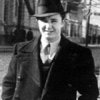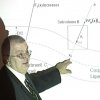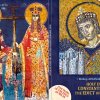Sidebar
Site Map
A great man is one who collects knowledge the way a bee collects honey and uses it to help people overcome the difficulties they endure - hunger, ignorance and disease!
- Nikola Tesla
Remember, remember always, that all of us, and you and I especially, are descended from immigrants and revolutionists.
- Franklin Roosevelt
While their territory has been devastated and their homes despoiled, the spirit of the Serbian people has not been broken.
- Woodrow Wilson
Danilo Mandić
Research Interests: Comparative historical sociology; nationalism; post-Communist transitions; Balkan history; US foreign policy and social theory.
.Ivan Aksentijevich
Ivan Aksentijevich earned his Medical Doctor Degree from the University of Belgrade, Serbia in 1986. He moved to the United States with his wife Ivona in 1989. Between 1989 and 1996, he completed two post-doctoral fellowships at the National Institutes of Health in Bethesda, MD. He went on and did a residency in Internal Medicine at St Agnes Hospital in Baltimore, MD, and followed this with fellowships in both Hematology and Medical Oncology at Johns Hopkins University Hospital, Baltimore, MD. He is a senior partner and member of the Executive Committee with the Virginia Cancer Specialists, in Alexandria, VA. He holds the Chair of the Cancer Committee at Alexandria Hospital and is a primary investigator on several clinical trials. His main clinical interrests are in the field of hematologic malignancies.
Milomir Stanisic / Миломир Станишић
Dragan M. Svrakic
- Psychiatry
Medical Education
- Medical Degree: School of Medicine University Of Belgrade, Belgrade, Yugoslavia, 1978
- Residency: Neuropsychiatry, School of Medicine, University of Belgrade, Belgrade, Yugoslavia, 1984
- Ph.D.: School of Medicine University of Belgrade, Belgrade, Yugoslavia, 1985
- Sub-specialty : Psychotherapy, Institute for Mental Health, Belgrade, Yugoslavia, 1986
- Residency: Psychiatry, Washington University School of Medicine, St. Louis, Missouri , 1998
Branko Bojovic
Dr. Bojovic is an expert in adult and pediatric craniofacial surgery, and microsurgery for congenital, oncologic and traumatic conditions. Among his specialties are adult microsurgical reconstruction of the head and neck following oncologic surgery, post-traumatic injury, and treatment of pediatric syndromic and non-syndromic craniofacial disorders, such as craniosynostosis and cleft lip and palate. His research focuses on composite tissue allotransplantation and tissue engineering, as well as clinical outcomes following surgery for cleft lip and palate surgery and facial trauma.
Tomislav Z. Longinović
University of Wisconsin-Madison
1452 Van Hise
1220 Linden Dr
Madison, WI 53706
608-262-4311
This email address is being protected from spambots. You need JavaScript enabled to view it.
Born and raised in Belgrade, Longinovic holds degrees in creative writing, psychology and has his Ph.D in comparative literature.
His books include Borderline Culture (1993), Vampires Like Us (2005), the co-edited and co-translated volume, with Daniel Weissbort: Red Knight: Serbian Women Songs (1992), and the edited volume: David Albahari, Words are Something Else (1996). He is also the author of several works of fiction, both in Serbian (Sama Amerika, 1995) and English (Moment of Silence, 1990).
His most recent book, Vampire Nation: Violence as Cultural Imaginary, was published by Duke University Press in 2011. His research interests include South Slavic literatures and cultures; the Serbian language; literary theory; Central and East European literary history; comparative Slavic studies, translation studies, and cultural studies.
.










